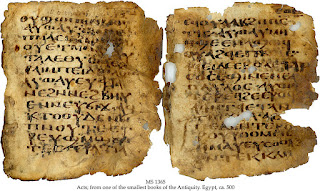Lessons from Acts
Have you ever noticed how sometimes
the weekly lectionary – that is the schedule of lessons which are read at
worship each week – kind of jumps around a lot. This year in Advent we started with Mark 13 and then jumped
to Mark 1 and ended up have the same Mark 1 passage in the lessons somewhere
around 5 times as we made little run-outs to other parts of the Gospel here and
there. Because of this it is
sometimes difficult to get a sense of the flow of the story. And having a sense of the stories of
the Bible, especially the story of Jesus life, ministry, passion and
resurrection, is important to us.
Well in the coming months we will
be preaching on stories. Through
the season of Easter we will be preaching on the Acts lessons that tell the
story of the Early Church. The
mini-series is called “Lessons from the Early Church.” What happened to the
Disciples after Jesus’ resurrection and ascension? Jesus charges them with the work of proclaiming God’s love
and grace in word and deed to the ends of the earth. How do they do this?
Unfortunately there are not enough lesson or weeks in Easter to get very
far into this but we can see a couple important things. The key verses are Acts 2:44-47:
All who believed were together and had all things in common; they would
sell their possessions and goods and distribute the proceeds to all, as any had
need. Day by day, as they spent much time together in the temple, they broke
bread at home and ate their food with glad and generous hearts, praising God
and having the goodwill of all the people. And day by day the Lord added to
their number those who were being saved.
From this we can glean a couple
very important things. 1st
Community was essential and they were a true community. They supported each other financially
and they shared their possessions with each other. This may strike us a odd in the context of our very
commercial and self-focused society.
But the fact is that the commitment to serve others is above all, and
certainly more important than our own contemporary tendency to acquire
things.
Second – they shared meals and
broke bread often. In Luke (and
the Luke who wrote the Gospel is also the author of the book of Acts) the
phrase “break bread” is a code that refers to sharing the Sacrament of the
Lord’s Supper (See Luke 24:30).
Coming together as a community and sharing in the Sacrament of Holy
Communion on a regular (at least once a week) basis was critical to the
spiritual health and their ministry.
It is also critical to ours as well. We all need to participate in Holy Communion as often as we
can, at least once of week. In
this way we are strengthened spiritually for ministry by the presence of Christ
received through bread and wine.
Third, and last they praised God in
all that they did. This includes
prayer, this includes reaching out to share God’s love and grace with others by
caring for those in need or by speaking a word of love and grace. Praise does not consist of just songs
or words. Like most of what we are
called to as disciples of Jesus, the most important way we can praise God is
through following him and living lives which are faithful to his calling and
that are responsive to others.
These are some of the themes we will explore during the season of
Easter. We could also call this
series “Living a Resurrection Life” because ultimately that is what we are
called to.
Coptic Manuscript of Acts 7:40-43 and 11:24-28 - from the Shøyen Collection, London/Oslo


Comments
Post a Comment